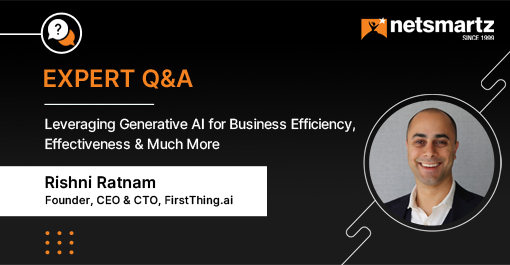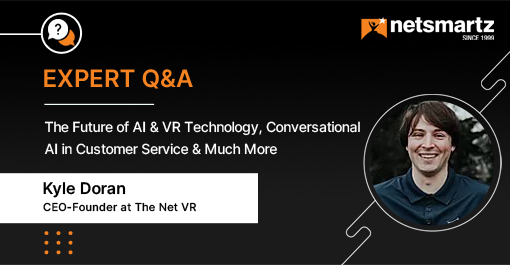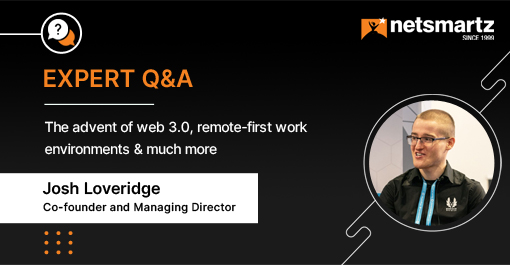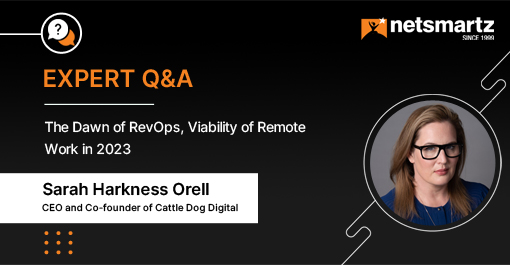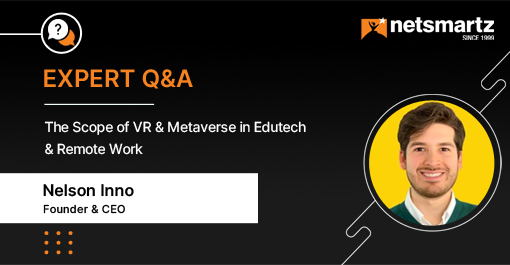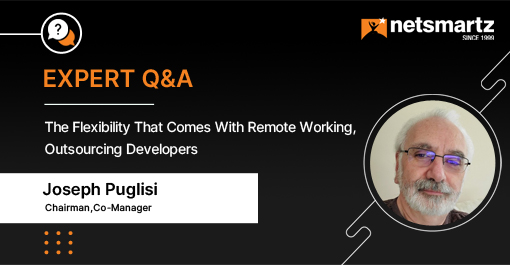The Future of AI and VR Technology, Conversational AI in Customer Service & Much More
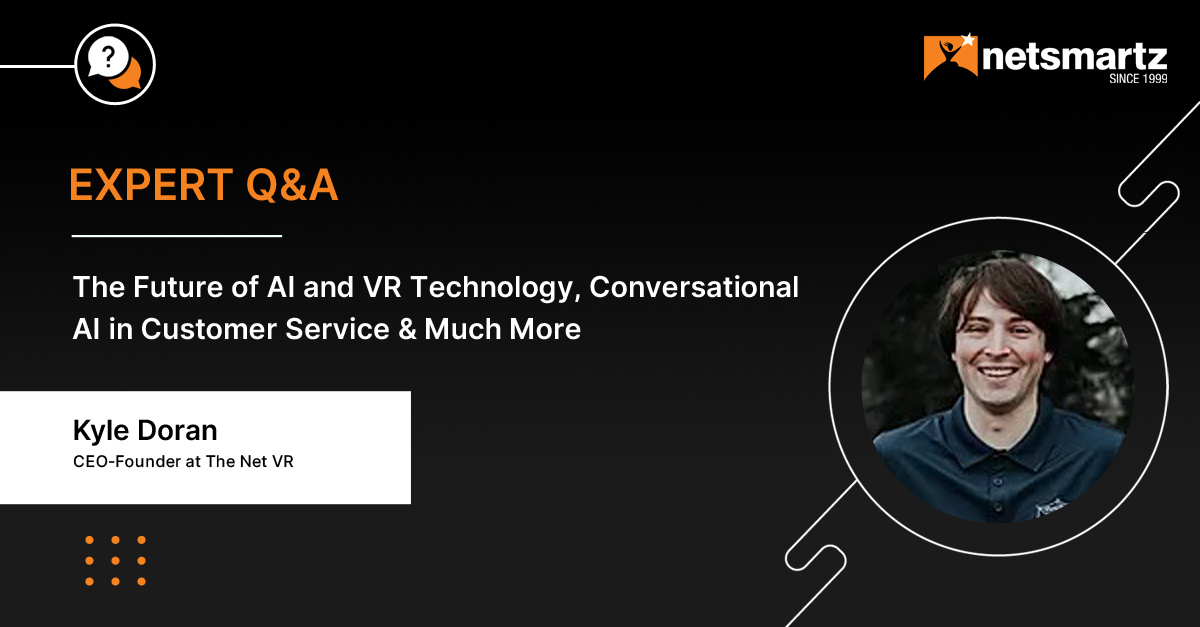
Over the past decade, AI and VR have taken the world by storm, transforming the way we live, work, and interact with one another. From virtual reality gaming and immersive experiences to the incredible possibilities of artificial intelligence, the potential of AI and VR technologies is limitless.
So, to understand the future of AI and VR, we got in touch with Kyle Doran, Founder of The Net VR, a new Reality Company, a metaverse consultant who lives in Portland, Oregon, United States.
Keeping on reading to learn his insights!
Want to contribute to our expert insights?
Contact Us About Kyle Doran
About Kyle Doran
Kyle Doran is an innovator who seeks to reinvent virtual reality in the wake of the metaverse. Through his company Net VR, he is focusing on creating immersive and engaging virtual reality experiences beyond the traditional gaming and entertainment industries. His vision is to create a fully realized metaverse where people can interact with each other in a virtual space that is indistinguishable from reality. To achieve this, he is developing cutting-edge technology that pushes the boundaries of what is currently possible in virtual reality. His leadership and Net VR’s innovative approach are poised to become major players in the emerging metaverse landscape.
1. How do you see the market for AI and VR technologies evolving in the next 5-10 years?
In my opinion, 3D space predominantly used in game engines will take over the web browser. Web browsers today are the predominant application used for doing business. However, they are efficient for displaying 2D web pages, not displaying 3D. Apart from this, VR will evolve. There will be a disconnect from the head-mounted display (HMD) from the 3D virtual space. Today we use predominantly 2D platforms on the internet, displayed through a phone, computer, or TV. Each device allows for a different level of immersion which is not a requirement for using the 2D internet. #noVRVR Furthermore, AI is considered to be an informational processor. There are studies that consider the brain to be a different type of information processor. Once AI outpaces the Human brain’s 100 million instructions, things will get interesting as our Apex predator status will become into question.2. What do you see as the main drivers of growth in the AI and VR market?
AI is an informational processor that lives in Virtual Reality. AI growth has exploded as coders use different types of processors, GPUs, and CPUs together in order to process information. Also, Nvidia is the biggest driver here and could be today’s version of what Terminator would call Skynet.3. What are the biggest challenges facing companies that are developing and selling AI and VR products and services?
I think companies are rushing to create solutions to be first. Everything is being created using the new GPT 4 platform. GPT-4 makes the back end very easy. However, the challenge is in how the user will interact with your application. When people start talking about AI, they tend to look at it through their own eyes. This makes selling difficult as the solution they create may not have a problem to solve. Wild imagination significantly outpaces practicality. We also have investors that make a lot of extra noise investing in their friends, which hurts 1000 other projects who lack “networking.”4. How do you see conversational AI impacting customer service and support, and how is your company addressing that impact?
Internally, GPT4 helps us code at a faster rate. Stack overflow is going to get replaced first by AI. An unforeseen impact of this is the decrease in humans helping other humans. For businesses, you need to understand that some people don’t want a computer to solve their problems. The problem is comparable to sending call centers overseas. Most people didn’t mind getting through the language barrier. However, some people did. So you need to cater your service response and be transparent. If a customer calls for service and they are talking with an AI, and the conversation is so real they think it’s a person, imagine the response when you tell them it was an AI. Being transparent when you are using AI is crucial to maintaining good customer relationships. Wrapping Up
Wrapping Up
The future of AI and VR technologies is an exciting and rapidly evolving landscape with countless possibilities and opportunities for innovation and growth. Kyle highlights the same as he sheds light on how conversational AI is impacting customer service and support.
Overall, this Expert Q&A was refreshing. As much as we enjoyed reading it, we hope you will find it insightful as well.

Are You An Influencer?
Make Your Mark as a Thought Leader
We invite industry influencers to participate in our Q&A panel, offering the audience valuable insight into cutting-edge technology trends, platforms, and more.









